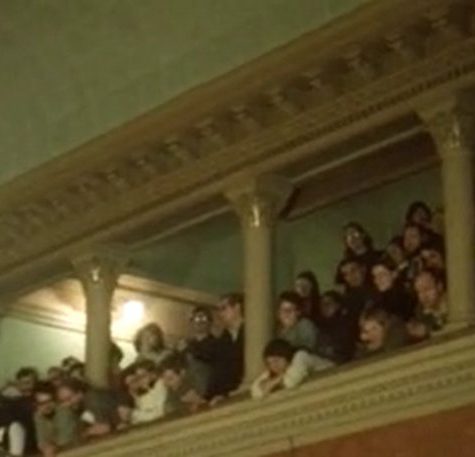
Cambridge enacted increasingly extreme rent control laws.
Rent control laws in Cambridge were uniquely harsh.
Cambridge rent control went much further than Boston and Somerville, both of which began decontrolling rentals by 1994.
Rent control prohibited leaving an apartment vacant.
In 1979, Cambridge passed a law that disallowed a buyer of a rent-controlled condominium to live in their own residence.
These people came to watch and listen to a rent control hearing like they would attend a show or a circus.
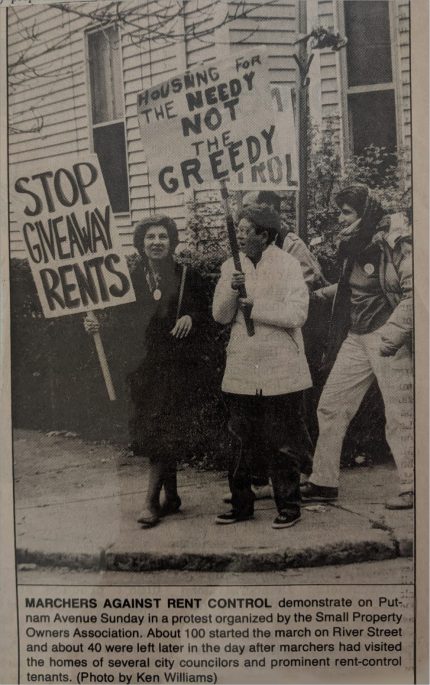
Harsh Cambridge rent control policies inspired organized opposition.
Local property owners’ groups petitioned the city council for reform.
After many frustrating years, they gave up on the city council.
They teamed up and led a campaign to place a statewide referendum on the 1994 election ballot.
The coalition persevered through numerous legal and logistical challenges to gather 70,320 certified signatures – 34 more than necessary – to qualify for the state ballot.
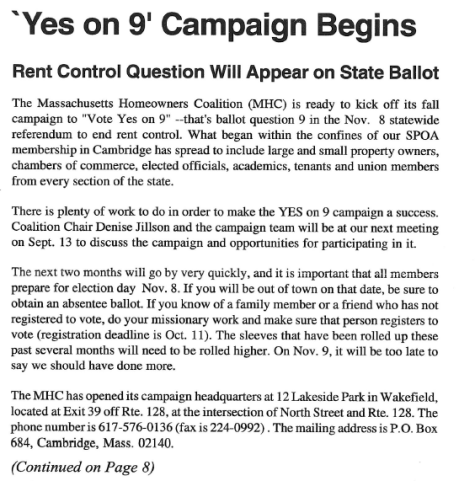
Ballot Question 9 asked voters to decide.
The ballot asked voters to repeal Cambridge-style rent control and replace it with a form of rent control that would work for renters and housing providers.
This new form of rent control would protect renters with absolute price locks.
It would require cities to reimburse owners.
This became Question 9.
It survived legal and legislative appeals and was included on the 1994 election ballot.
The law would take effect quickly, on January 1, 1995.
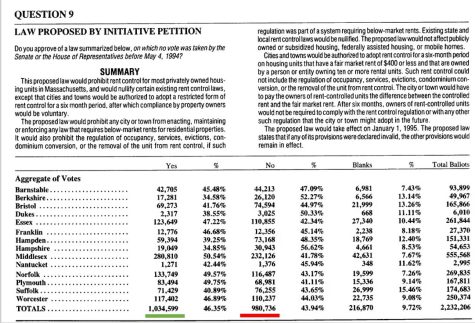
Massachusetts voters approved the reform.
Ballot Question 9 was approved by voters by a 51% to 49% margin.
Boston, Brookline and Cambridge, the only cities retaining rent control in 1994, all voted to keep rent control in place.
Cambridge voters rejected Question 9 by 58% to 42%.
Boston and Somerville votes were considerably closer.
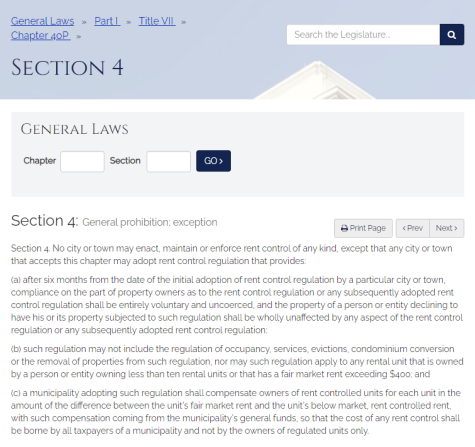
Massachusetts communities still can have rent control to this day.
Question 9 created Chapter 40P, the state’s rent control law.
Section 4 allows any municipality to enact rent control as long as owners are reimbursed the difference between the price lock and the market rent.
This remains the only rent control law in the country written by housing providers.
It turned rent control into a form of rental assistance, paid for equitably by tax dollars.
As more people come to live here, it is our obligation to build more housing.
In the meantime, rental assistance that helps housing providers maintain housing is ready and waiting to be used.